Superman (2025)

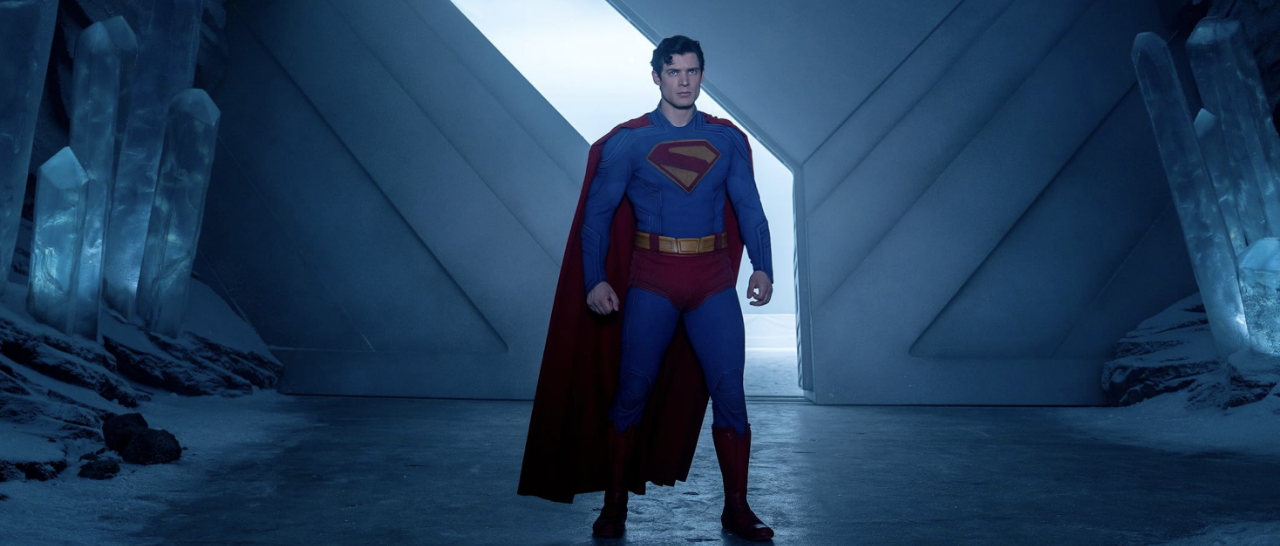
Superman (2025) arrives with the weight of the world on its shoulders. A cinematic reboot of one of the most iconic characters in history, crafted by James Gunn, a filmmaker known for his irreverence, maximalism, and occasional tonal brilliance. But here, what we get is a deeply conflicted film. It wants to be sincere, but often hides behind sarcasm. It tries to feel epic, but lacks narrative cohesion. It aims for emotional resonance, but gets stuck in sketch-comedy rhythm. This isn’t the worst superhero film we’ve seen in the last five years, but it’s also far from the reinvention that Superman deserved. It is, quite simply, a mixed bag. The best Superman stories don’t need to be loud. They need to be true. This one, for all its style and potential, didn’t quite find its truth!
Story & Themes
At its core, Superman wants to tell a story about hope. About unity. About belonging. And in the final act, it nearly gets there. The closing confrontation between Superman and Lex Luthor becomes a thinly veiled commentary on immigration and otherness in America. When Kal responds to Lex calling him an “alien” by affirming his human identity, it lands. That moment carries a weight, and judging by the way audiences are reacting online, it resonates deeply with people. It’s vulnerable. It’s meaningful. It’s political in a very real, timely way.
But the journey to that moment is patchy. The script feels rushed and uneven. Scenes often jump from one emotional beat to another without any organic glue holding them together. The story moves quickly, but without flow. There’s a tonal identity crisis at the heart of the film. You can sense that it wants to be both a soulful meditation on Superman’s humanity and a James Gunn-style quippy romp. In trying to be both, it ends up doing neither particularly well.
Wile at face value, Superman (2025) is about hope, belonging, and moral responsibility. But dig just a little deeper, and it becomes clear that this is one of the most politically charged Superman films ever made. The fictional occupation of Jarhanpur by Boravia is a direct allegory for the real-world occupation of Palestine by Israel.
Boravia’s military dominance, its unprovoked invasion, and the framing of its occupation as “security” closely mirror Israel’s justification for its actions. Meanwhile, Lex Luthor operating behind the scenes, arming and enabling Boravia’s regime, feels like an unsubtle commentary on the United States’ support for Israel, both politically and militarily.
What makes this especially bold is that Superman doesn’t take the neutral route. He sides with Jarhanpur. He defends the occupied, the displaced, the voiceless. This version of Superman isn’t a symbol of American power. He’s a moral force choosing justice over politics. The message is clear: being a hero means standing with the oppressed, even when it’s unpopular.
Character & Performances
One of the fundamental problems with Superman (2025) lies in how the title character is portrayed. Early on, the film establishes Kal-El as the strongest metahuman in the universe, yet it never truly shows us this. There is never a set piece or sequence that allows Superman’s physicality, power, or presence to be fully felt by the audience. We’re told he’s a god, but we never see the god in action.
That lack of payoff makes it difficult for David Corenswet to truly embody Superman in the way he could have. There’s a difference between looking the part and owning the space. Corenswet has the tools, there’s no doubt he can act, and in scenes like the interview with Lois, he proves that he can project emotional strength and quiet authority. But these moments are too few and far between. Superman never commands the room. He never radiates the aura of someone who could change the course of a planet with a single decision.
The problem seems to stem from the writing. Rather than crafting scenes that reinforce Superman’s significance, the film frequently undermines him. For example, when an entire country is under occupation and a child holds up a Superman flag, begging for him to come save them, it’s not Superman who answers. Instead, we get the early formation of the so-called “Justice Gang,” a sequence that feels rushed and tonally clunky. Why write this powerful, beloved hero out of one of the most important moments in the film? That should have been a defining showcase for Kal-El, an opportunity to remind the audience what he means to the world.
Instead, the film has him saving squirrels and being bailed out by Krypto and others repeatedly. While the intention might have been to show that Superman values every life, the execution ends up diluting his mythos. He doesn’t feel like the world’s last line of defence. He feels like a supporting character in his own origin story.
That said, one thing Gunn does succeed at is re-framing the soul of Superman. This version isn’t haunted or alienated in the same way Snyder’s was. He is emotionally open. He cares. He loves. He cries. This Superman is clearly written to represent humanity at its best. That thematic shift works. It’s refreshing. But for it to resonate fully, it needed to be supported by stronger storytelling and more assertive direction.
As for Lex Luthor, this version is a complete tonal misfire. Nicholas Hoult is a talented actor, and with the right material he can be excellent. But here, he’s given very little to work with. His Lex feels like a parody, a cartoonish embodiment of villainy without any compelling ideology or weight. The film struggles, if not outright fails, to convincingly explain why Lex hates Superman. There’s a vague reference to jealousy near the end, Lex is envious of the way the world embraces Superman despite him being an outsider. That’s a fine starting point, but it’s never explored with any depth. Where does that envy come from? What is it rooted in? Without that psychological detail, Lex just comes across as petty and ridiculous. The scene where he breaks into the Fortress of Solitude is a perfect example. His appearance and wardrobe feel more like something out of a parody sketch than a high-stakes blockbuster.
And then there’s Lois Lane. Rachel Brosnahan is sharp and charismatic, but the script barely gives her anything to do. The relationship between Lois and Clark is framed as complicated or strained, but it never feels that way because we barely see it. There’s no weight to their dynamic. It doesn’t feel lived-in or earned. For a character who has historically been central to understanding Superman’s humanity, this version of Lois ends up feeling more like a narrative checkbox than a fully realised presence in Kal’s life.
Ultimately, the performances themselves aren’t the problem, it’s the writing and character design. The cast is capable. There are flickers of what this could have been. But too often the film rushes past character beats in favour of style, irony, or spectacle. In doing so, it robs its central trio of the emotional gravitas and dimensionality they deserve.
Cinematography & Visual Storytelling
Visually, Superman carries an intentional throwback feel. It blends modern-day spectacle with retro lighting design, creating a world that feels slightly out of time. There are shots in Metropolis that evoke the bright-clean palette of classic Superman comics, but others that try to mimic the grounded, grittier look of Zack Snyder’s universe. The visual identity, like the tone, lacks consistency.
There are moments where the camera work stands out, particularly in flight sequences or when Superman hovers mid-air, framed against a wide skyline. The composition in those instances is powerful. But there’s also a lot of visual clutter in action scenes. The cutting is quick. The geography of the fights often unclear. It’s hard to tell whether the cinematography was trying to stay grounded in emotion or just deliver popcorn spectacle.
Lighting does the heavy lifting in many scenes, especially indoors. The warmth of Kansas. The fluorescent coldness of Luthor’s labs. The golden-hour tones during emotional beats. All are nice touches, but they rarely add up to a strong visual philosophy.
Technical Mastery
Cameras and Lensing
The film was shot digitally using the ARRI Alexa LF, with Panavision lenses chosen to balance digital crispness with a softer, more human feel. The cinematographer appears to have leaned into a gentle vintage look, using lens flares and bloom to capture a kind of Americana sentimentality. But the use of depth-of-field is sometimes inconsistent. In emotional scenes, the shallow focus helps isolate Superman’s inner world, but in action sequences, it occasionally feels artificial and disorienting.
Aspect Ratio and Composition
Framed primarily in 2.39:1, Superman keeps its visuals cinematic and wide, though Gunn rarely makes use of the full frame. The compositions are clean but rarely inspired. There are a handful of tableaus that stand out, Superman floating above crowds, for example, but you get the sense the camera is capturing moments rather than crafting them.
Use of Space and Environment
Metropolis is portrayed with scale but lacks personality. We don’t feel like we live in this city. The Daily Planet, Luthor’s tower, even the Kent farm, all feel like sets rather than lived-in spaces. Compare this to the tactile world-building of The Batman or Man of Steel, and it falls short.
Consistency and Intent
This is where the film struggles most. The visuals want to feel hopeful, but they’re often undermined by jarring tonal choices. The story wants gravitas, but the camera rarely commits to intimacy or scale long enough to deliver it. It’s a film caught between homage and innovation and never fully lands either.
Sound & Score
The score by John Murphy is competent, and in some places genuinely beautiful, especially when Superman leans into his human side. There are soft piano motifs tied to his identity as Kal, and broader orchestral swells when he takes flight. However, the score is never allowed to breathe because it’s constantly being interrupted by quips or dialogue. There’s rarely a quiet moment. And that’s a shame.
Sound design overall is punchy. The action hits hard. But again, there’s nothing truly standout. No sonic signature. No motif that lingers once you leave the cinema.
Direction & Pacing
This is where James Gunn, for me, loses grip. Gunn is a director with undeniable talent. His work on The Suicide Squadand Guardians of the Galaxy showed his ability to blend humour with heart. But here, he seems unsure of what kind of film he wants to make.
The pacing is messy. There’s barely a pause between plot beats. Scenes feel like checkboxes. Emotional moments arrive but are undercut by jokes or rushed transitions. There is a sense that Gunn is too busy trying to get to the next punchline or set piece to let the current moment land.
His direction lacks discipline. The film has a message about belonging and compassion, but he buries it beneath layers of irony. And while many audience members are coming away feeling hopeful and happy, as a filmmaker and storyteller, I couldn’t help but feel like it was a missed opportunity.
Emotional & Intellectual Impact
There’s no question that Superman (2025) tries to leave its audience with more than just spectacle. And while the execution sometimes stumbles, the emotional impact of its message lands.
Watching Superman stand between Boravia’s forces and the people of Jarhanpur evokes strong real-world emotions, especially for those of us who’ve seen similar images from Palestine play out in the news. The film doesn’t name names, but it doesn’t need to. When Superman intervenes, it’s not just a superhero saving a nation. It’s a clear statement: true strength is choosing to protect the powerless, even when the powerful are watching.
For me, that choice hit harder than any punch or explosion. It challenged what we’ve come to expect from Superman on screen, not just a saviour, but a symbol of resistance, empathy, and human dignity. That’s a powerful message, and it lingers.
Final Verdict
Superman (2025) is not a disaster. It’s entertaining in parts, and I understand why audiences are embracing its optimism. But as someone who values storytelling, character depth, filmmaking craft, and emotional honesty, I walked away underwhelmed. This was a chance to redefine Superman for a new generation. Instead, we got a highlight reel of moments, stitched together with half-baked jokes and surface-level heart.
My Favourite Frames

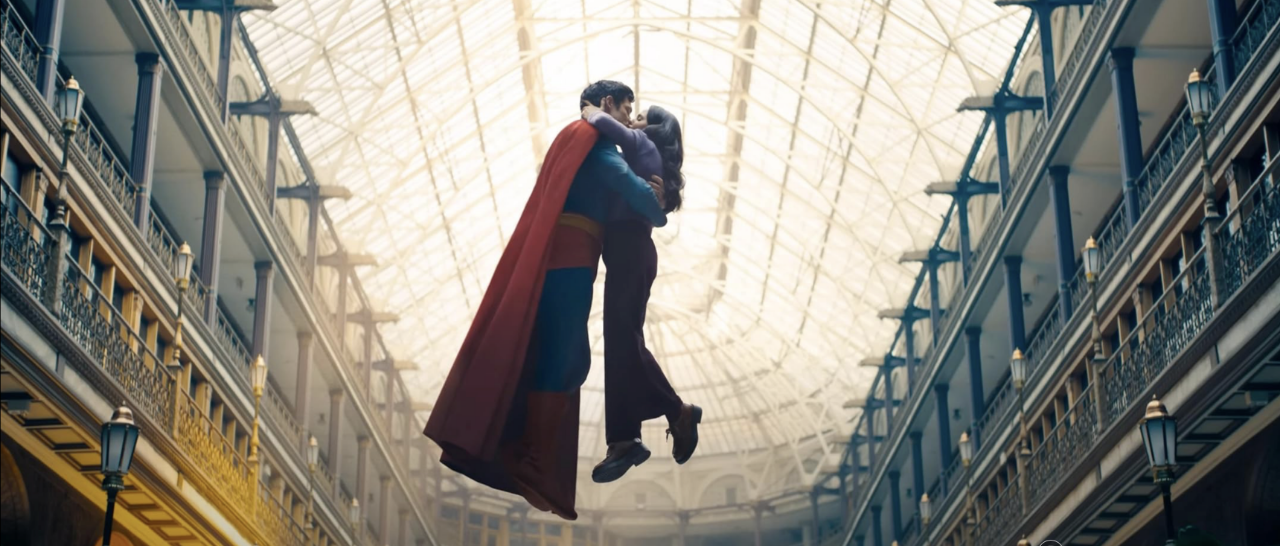
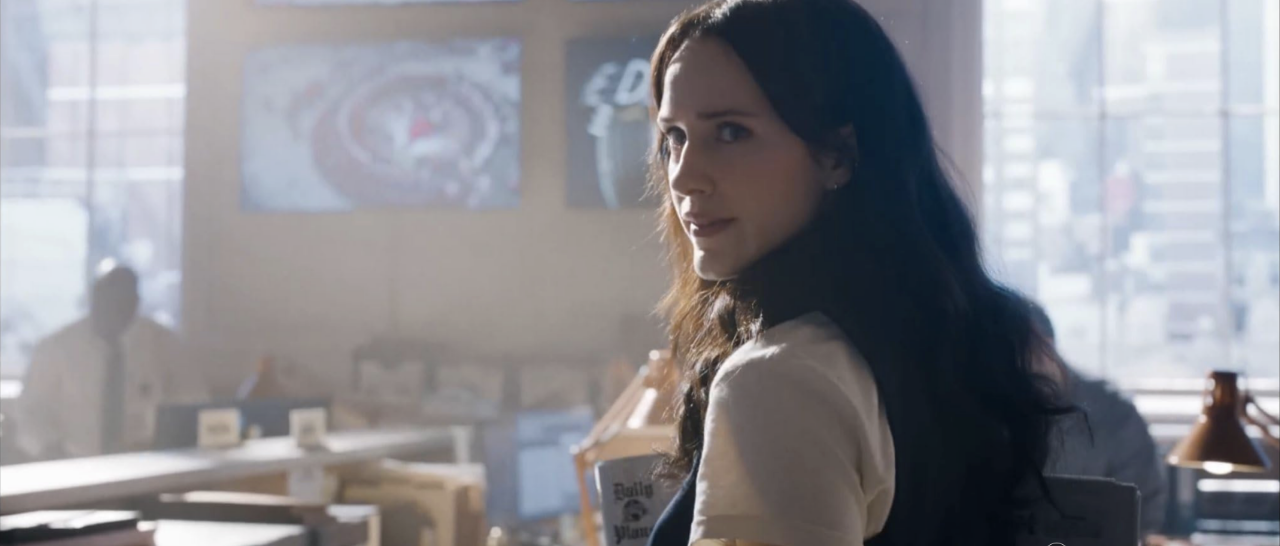
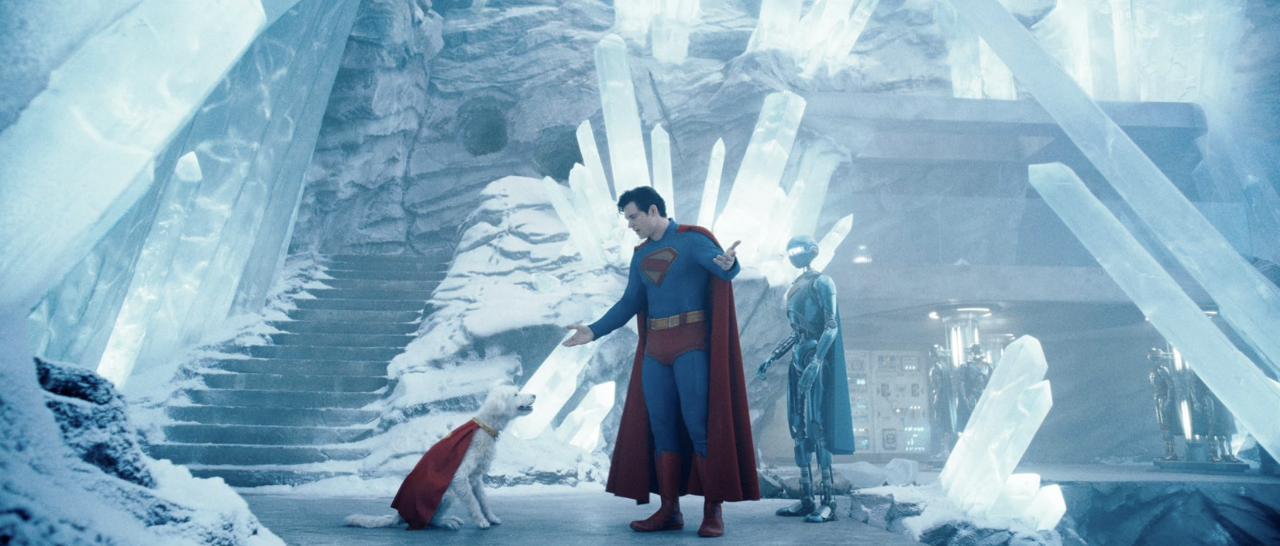

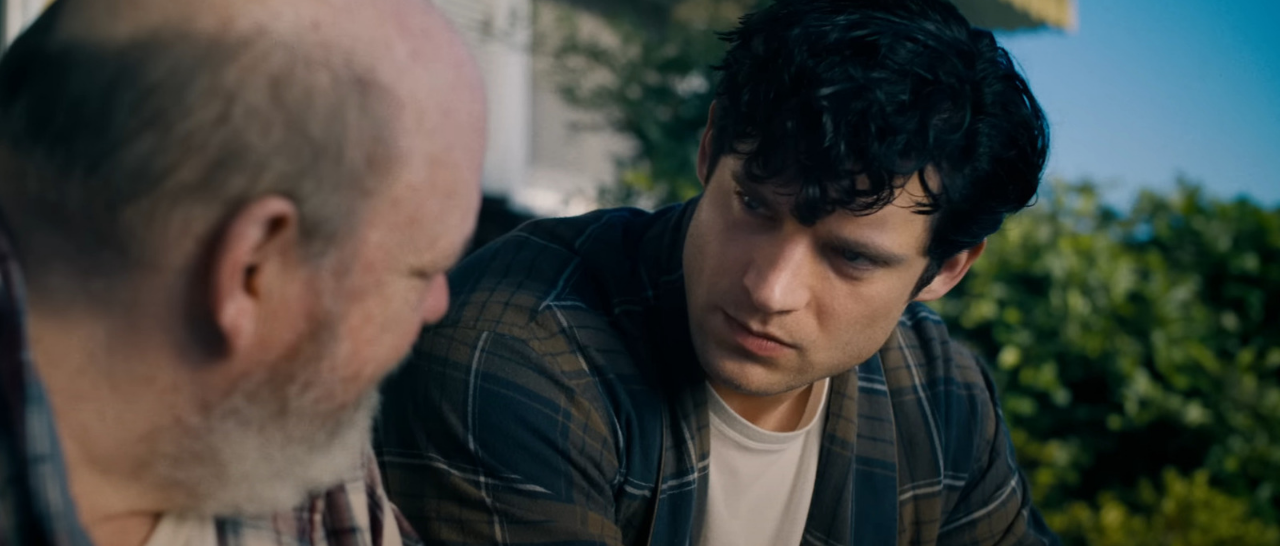

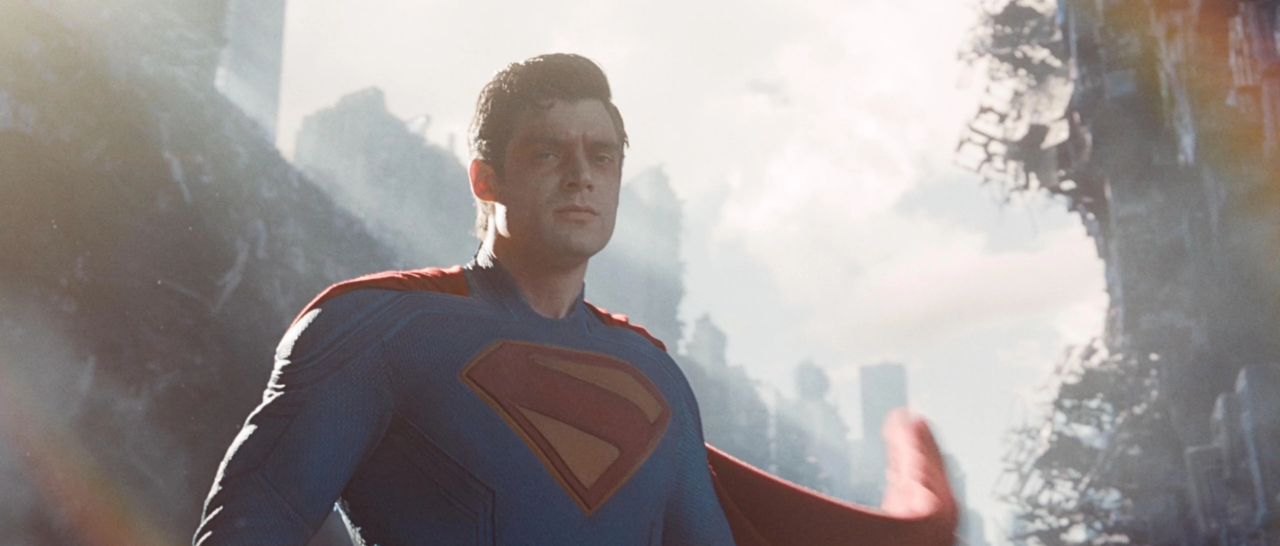

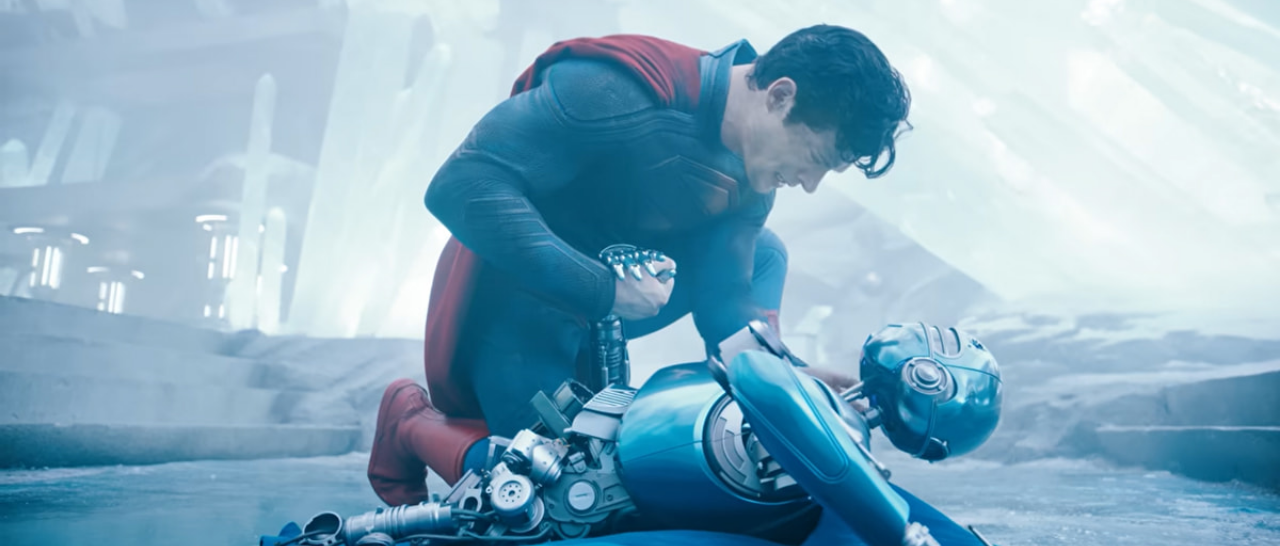
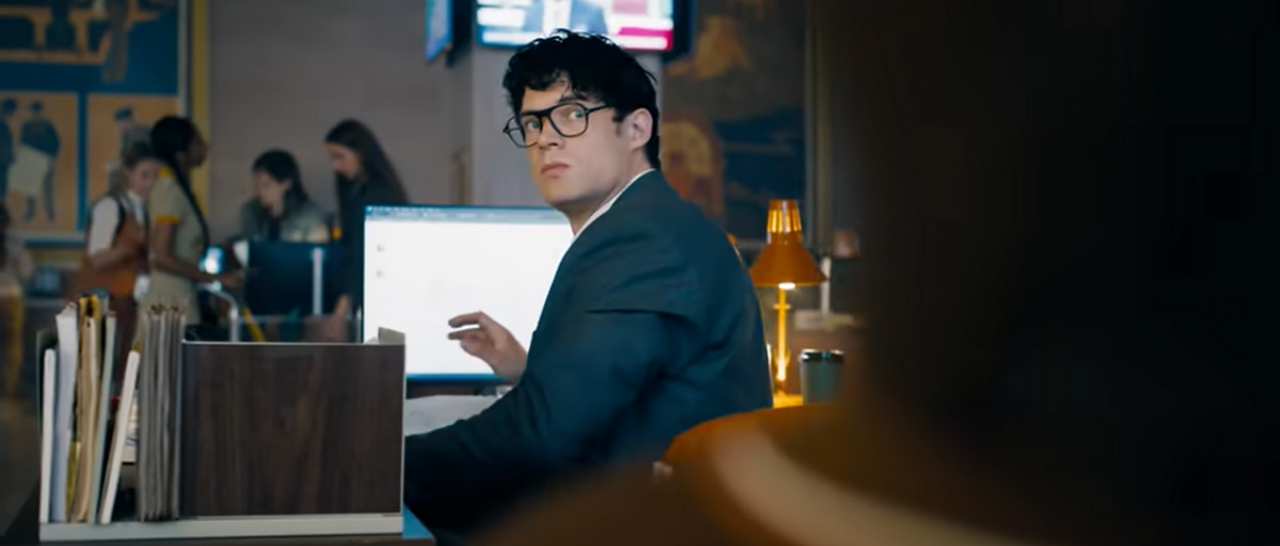


Old age should burn and rave at close of day;
Rage, rage against the dying of the light.” ❤️




